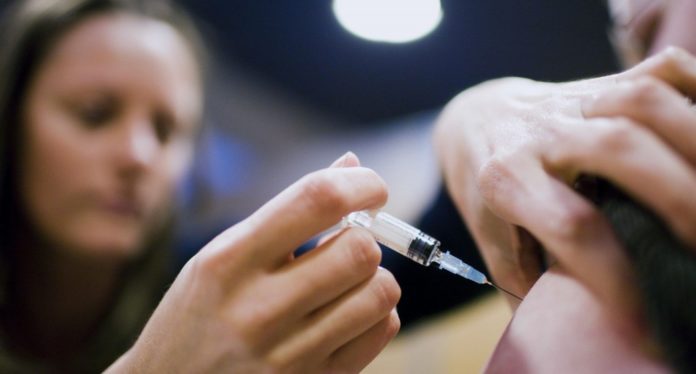
Contrary to concerns that getting vaccinated against human papilloma virus (HPV) will lead young people to have more or riskier sex, a new study finds lower rates of risky behavior among young women who got the HPV vaccine.
“To my knowledge no studies have shown that HPV vaccination increases risky sexual behavior among young women and some of these studies have shown this (less risky behavior) is also the case outside of the UK,” said Dr. Laura Sadler of the University of Manchester, who led the study.
It’s possible that getting vaccinated led to better education about sexual health, Dr. Sadler and her colleagues write in the Journal of Family Planning and Reproductive Health Care. It’s also possible, they said, that young women who are already less likely to take risks are the ones who are more likely to get vaccinated.
HPV is one of the most common sexually transmitted infections and causes the majority of cervical cancers. The virus has also been linked to anal and throat cancers. Two vaccines, Cervarix and Gardasil, are now available that protect against strains of HPV that cause most cervical cancers.
Even though public health officials recommend that girls and young women be vaccinated against HPV, some parents have hesitated to follow those guidelines, thanks in large part to a persistent myth linking the vaccine to increased sexual activity or unsafe sex.
For the new study, Dr. Sadler’s team reviewed the medical records of 363 women born in 1990 or later who attended an English clinic. Almost two-thirds of the young women in the group had received at least one dose of the vaccine. Full vaccination requires three vaccine shots.
The researchers compared the womens’ histories of behaviors that are risky in themselves or tend to be linked to risky sexual behavior, such as not using condoms, having sex for the first time when they were 15 or younger, having six or more sexual partners and drinking alcohol two or more times a week.
They found five variables related to sexual behavior that were significantly different between women who had been vaccinated and those who hadn’t.
Women who were not vaccinated were more likely to have had three sex partners in the last six months, to have attended the clinic with symptoms of a sexually transmitted disease, to have had anal intercourse with their last sexual contact and to have tested positive for Chlamydia (a common sexually transmitted infection) at their clinic visit.
Being vaccinated, in contrast, was associated with less-risky behaviors, such as using condoms.
While the findings are encouraging, and consistent with other research demonstrating that HPV vaccination does not lead to riskier behaviors, the study does not demonstrate that vaccination causes less risky behaviors, but rather that there is a correlation between the two.
One explanation for the findings is that girls who are vaccinated receive education about sexual health and prevention, which in turn decreases riskier behaviors, the researchers said. Another explanation is that girls who practice healthier and less risky behaviors are more likely to receive the vaccine, they noted.
The new study adds to a growing body of research that has debunked the myth that HPV vaccination encourages risky sexual behavior. But even though there’s no actual evidence that taking this preventative step leads teens to become sexually promiscuous, this type of misinformation about the HPV shot has persisted. Recent estimates indicate that a staggering 70 percent of U.S. parents don’t even realize the vaccination is intended to prevent cancer.
Rates of HPV vaccination continue to lag, and the rates of related cancers continue to rise. According to a study published last month in the journal Vaccine, half of teenage girls in the U.S. are not receiving the HPV vaccine at the recommended age.
Health officials are particularly concerned about Southern states, where a dangerously low number of teen girls are receiving the vaccine. Unsurprisingly, that region — largely controlled by conservative lawmakers — also tends to resist other preventative measures to protect teens’ sexual health, like teaching them about condoms and birth control in their health classes. That’s also why these states tend to have the highest rates of sexually transmitted infections and teen pregnancies.
